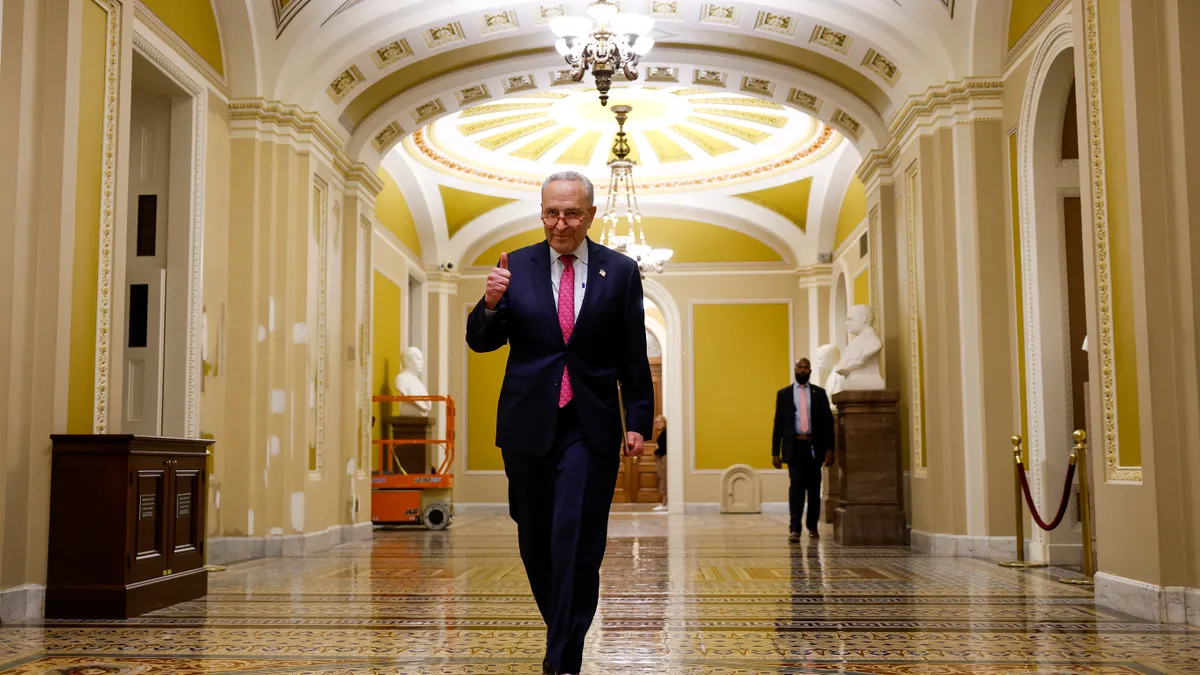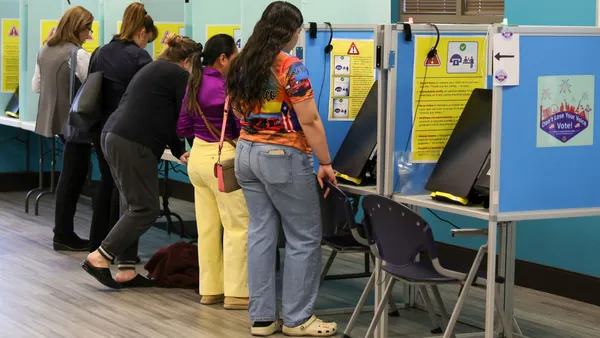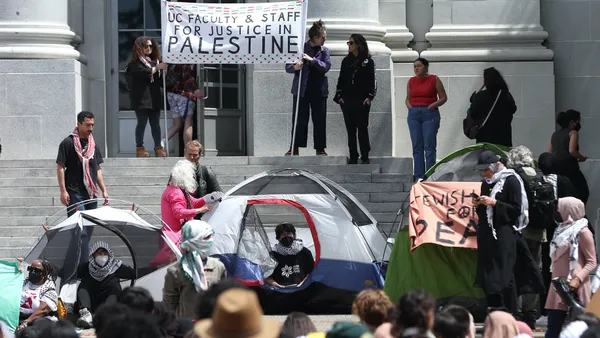Days before the U.S. was poised to default on its debts, the Senate passed bipartisan legislation that raises the debt ceiling limit — and flat-funds federal education spending for fiscal 2024. The agreement also limits nondefense spending, including education, to a 1% increase in fiscal 2025.
Many Republican and Democrat members of Congress, as well as several education organizations, praised the efforts to find a compromise that avoids severe cuts to education and social services but still guarantees the country will pay its bills. The default deadline was considered to be Monday.
President Joe Biden said in a statement he will sign the measure — known as the Fiscal Responsibility Act — “as soon as possible.” He also plans to address the nation at 7 p.m. ET Friday regarding the bipartisan budget agreement.
The legislation would rescind unspent COVID-19 emergency relief funds, but according to an emailed statement from a U.S. Department of Education spokesperson, this does not apply to the allocations under K-12's Elementary and Secondary School Emergency Relief funds since that money is considered to already be obligated.
Additionally, the department said $390 million of Higher Education Emergency Relief Funding that would be rescinded includes funds that were either returned or not claimed by institutions of higher education. That's a small portion of the $76 billion in total funding for recovery efforts, the statement said.
In a May 31 letter from AASA, The School Superintendents Association, to Congress, the membership organization asked lawmakers to approve the bill, which was passed in the House that same day in a 314-117 vote.
AASA also asked lawmakers to be thoughtful during the appropriations process as specific allocations are considered for fiscal 2024 federal education activities. The 2024 federal fiscal year begins Oct. 1.
Lawmakers should "engage in bipartisan, bicameral negotiations that respect the broad programs funded, to ensure that final funding levels are tailored and reasonable, not blunt and careless, and to protect federal education flagship programs — like Title I and [the Individuals with Disabilities Education Act] — from deep or disproportionate cuts," AASA said in the letter.
AASA, along with the American Federation of Teachers, said they had hoped for a bipartisan deal that had no conditions attached — or what is known as a "clean" debt ceiling increase.
A May 31 emailed statement from Randi Weingarten, president of the teachers union, said that while the debt ceiling compromise does not include the GOP's original suggestion of cutting Title I by $850 million, the organization has concerns about the deal, such as restrictions on certain food assistance programs and cuts to Internal Revenue Service resources.
"But in the face of an imminent default that would raise costs on everything from car loans to mortgage payments, both legislative chambers must approve this deal to allow the federal government to pay its bills and avoid massive harm to the students, families, workers and communities that need and rely on government to work for them,” Weingarten said.

















